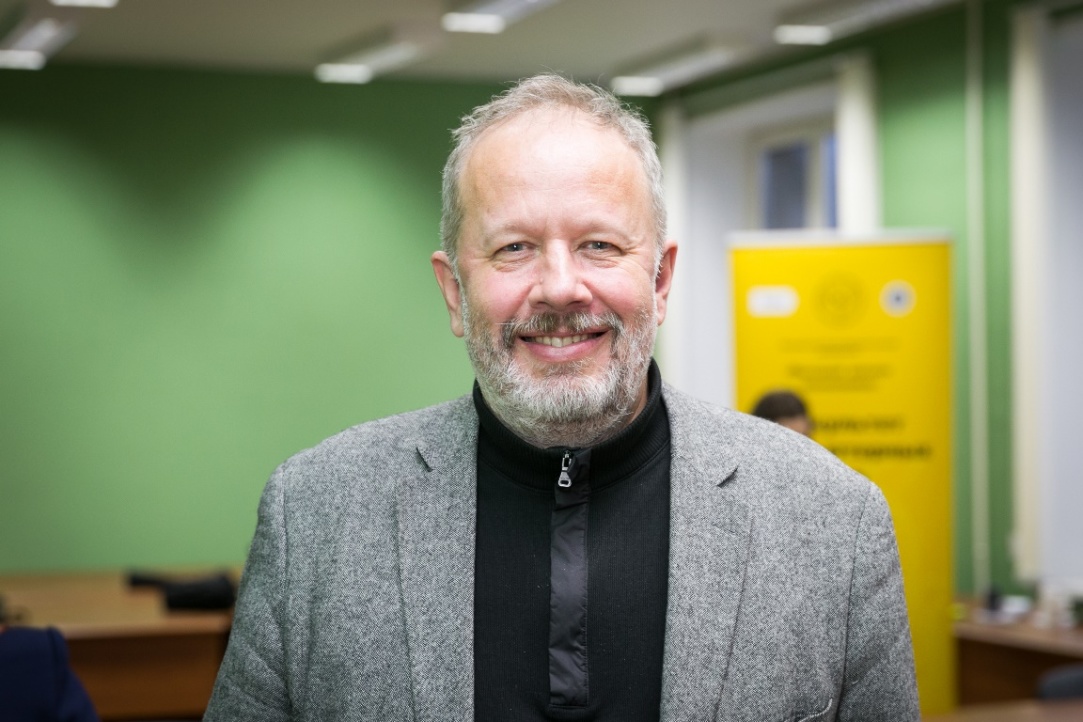Leading Researcher at the HSE Faculty of Computer Science Coordinates New Experiment at CERN

Fedor Ratnikov, a leading researcher at the Laboratory of Methods for Big Data Analysis (LAMBDA), has been appointed project coordinator in the SHiP collaboration. He will be responsible for developing and designing the detector’s active magnetic radiation shielding.
Search for Hidden Particles (SHiP) is a new experiment using the Super Proton Synchrotron accelerator (SPS CERN) - the second largest machine in CERN’s accelerator complex. The aim of the experiment is to search for particles hidden outside the Standard Model. Described by a large number of theories, these particles have eluded observation in other experiments carried out to date with the Large Hadron Collider, due to their unusual properties.
The SHiP experiment searches for very weakly interacting long-lived particles - heavy neutral leptons, particles of the hidden sector, light supersymmetric particles. The high intensity of the SPS CERN and, in particular, the abundant production of charmed mesons, make it possible to study a wide range of light long-lived exotic particles. In addition, the SHiP experiment is ideally suited to examining the properties of tau neutrinos. These particles will help shed light on the nature of dark matter, neutrino oscillations and the origin of baryon asymmetry in the universe.
Only a few weeks ago, HSE became an associate member of the LHCb collaboration at the European Nuclear Research Center.
‘Coordinators have to be able to solve both scientific and organizational tasks,’ Fedor Ratnikov said. ‘HSE, as a new coordinator, has therefore been recognized as a strong and active university within CERN. We will have access to unique data and new possibilities to solve current problems in particle physics. We will also deal with new and unique tasks. It is science in its purest form.’
The SHiP experiment team is currently being formed and the experiment itself will be launched in 2026. According to Fedor Ratnikov, SHiP is one of five new experiments which hold a lot of potential for the future of science. Most efforts are currently focused on building the new detector. The LAMBDA team, for its part, will continue to optimize the protection magnets.
See also:
‘The Role of an Academic Supervisor Is Not about a Fixed Schedule’
Pavel Voloshchuk has been developing and researching educational products for 14 years. Since August 2024, he has led two master's programmes at the HSE Faculty of Computer Science: ‘Research and Entrepreneurship in Artificial Intelligence’ and ‘Master of Data Science.’ In this interview, he talks about his career path, time management, and the specifics of academic supervision.
Representatives of HSE University among Winners of Znanie.Lecturer Competition
On February 5, 2025, the National Centre ‘Russia’ in Moscow hosted an awards ceremony for the winners of the fourth season of the All-Russian competition Znanie.Lecturer organised by the Russian Society Znanie (translated as Knowledge in English). The winners included 70 lecturers from 37 Russian regions. Representatives of HSE University were among the best of the best.
Faculty of Economic Sciences Wishes Colleagues and Students a Happy New Year
As we look forward to 2025, FES professors have prepared a video message for students and colleagues. In this heartfelt address, they convey their warmest wishes, congratulations, and aspirations for a year filled with fruitful endeavors and remarkable accomplishments.
‘English Will Still Be the Global Language of Scientific Communication’
The HSE University Academic Writing Centre (AWC) was created to offer linguistic support to researchers writing articles in English. We spoke to the head of the AWC, Svetlana Suchkova, about the centre’s current initiatives, whether it has had to change the focus of its activities, and why HSE University staff come to the centre.
‘I Prefer Work to Most Types of Pastime’
Ivan Arzhantsev has headed up the Faculty of Computer Science since it was established in 2014. He has never been a specialist in Computer Science – all his life he’s been engaged in mathematics. On his 50th birthday, he shared with HSE Life how this has helped him to lead the best HSE faculty.
HSE University in Perm: The Upcoming Anniversary
On September 12, 1997, HSE University in Perm was established by decree of the Government of the Russian Federation. A year later, the university enrolled its first students.
‘These Are Very Promising Specialists in Product Management and Data Analysis’
HSE University launched the Master’s in Data-Driven Communication in 2019. The programme is aimed at promising managers who want to master modern technologies for working with clients. It trains professionals in product management and marketing who know how to work with data and AI.
'Learning what You Really Need'
Anastasia Likhacheva was appointed Dean of the Faculty of World Economy and International Affairs in November 2021. During her first six months in this position, she has faced numerous new challenges. In her interview with HSE University Life, she explains how she and the Faculty have been coping, why she spent just one year working outside of academia, and how prospective students can rethink their future careers in international relations.
Faculty of Computer Science Lab Develops Monitoring System for LHC Experiment
Researchers from the Laboratory of Methods for Big Data Analysis (LAMBDA) at the HSEFaculty of Computer Science have created a monitoring system that is used in the Large Hadron Collider beauty experiment (LHCb). The system helps track the quality of the collected data and allows operators to quickly find errors.
'We Pursue Whatever Interests Us!'
MIEM HSE Professor Lev Shchur is celebrating his 70th birthday. In his recent interview with MIEM HSE News Service, he talks about the first scientific computer network created in the Soviet Union, the state of computational physics today, and the current online and offline work being conducted by his research team of undergraduates and faculty members.


